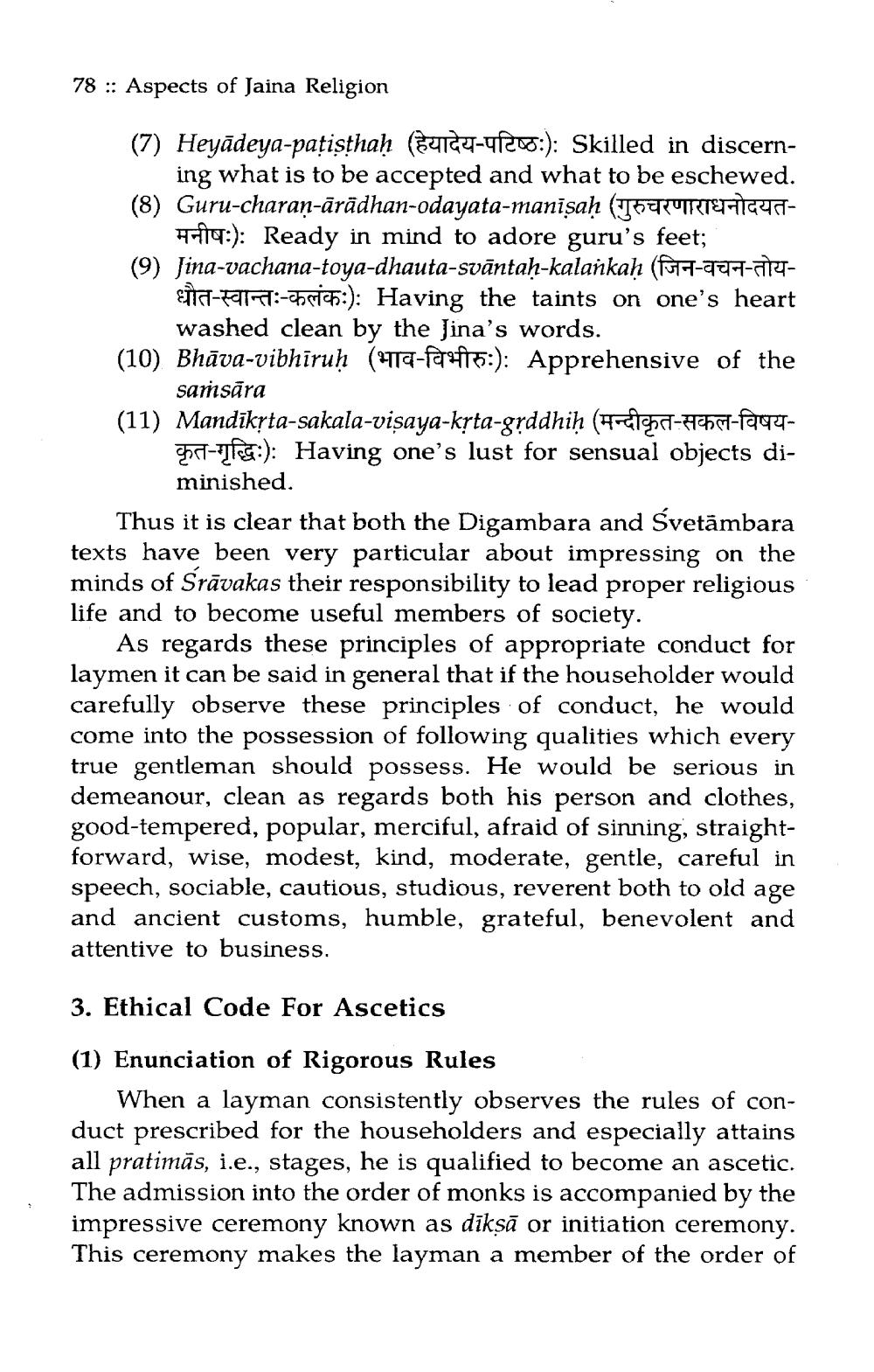________________
78 :: Aspects of Jaina Religion
(7) Heyādeya-pațisthaḥ ( c4-47205:): Skilled in discern
ing what is to be accepted and what to be eschewed. (8) Guru-charaṇ-ārādhan-odayata-manīşaḥ (15772 URTETIC4
- 19:): Ready in mind to adore guru's feet; (9) Jina-vachana-toya-dhauta-svāntah-kalankaḥ (F77-97-14
ETIC-Felt:-chrich:): Having the taints on one's heart
washed clean by the Jina's words. (10) Bhāva-vibhīruḥ (9779-f9f15:): Apprehensive of the
samsāra (11) Mandikrta-sakala-visaya-krta-grddhiḥ (Hreichd-Hahat-faqu
S-Įics:) Having one's lust for sensual objects di
minished. Thus it is clear that both the Digambara and Svetāmbara texts have been very particular about impressing on the minds of Srāvakas their responsibility to lead proper religious life and to become useful members of society.
As regards these principles of appropriate conduct for laymen it can be said in general that if the householder would carefully observe these principles of conduct, he would come into the possession of following qualities which every true gentleman should possess. He would be serious in demeanour, clean as regards both his person and clothes, good-tempered, popular, merciful, afraid of sinning, straightforward, wise, modest, kind, moderate, gentle, careful in speech, sociable, cautious, studious, reverent both to old age and ancient customs, humble, grateful, benevolent and attentive to business.
3. Ethical Code For Ascetics (1) Enunciation of Rigorous Rules
When a layman consistently observes the rules of conduct prescribed for the householders and especially attains all pratimās, i.e., stages, he is qualified to become an ascetic. The admission into the order of monks is accompanied by the impressive ceremony known as dīksā or initiation ceremony. This ceremony makes the layman a member of the order of




